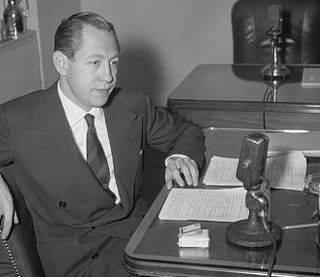A Quote by Sarah Harrison
The concept of preserving history, collating full archives, making them as usable as possible so the public have access to them, I really feel that it allows the public an ability to engage with their own history.
Related Quotes
The Constitution forbids states from banning all religion from public spaces and from making churches the ghettos of religion where all manifestations of faith are kept separate from public life. Religious people have an equal right to participate in the public square and to have their contributions to Oklahoma history and society recognized.
The bourgeois public sphere may be conceived above all as the sphere of private people come together as a public; they soon claimed the public sphere regulated from above against the public authorities themselves, to engage them in a debate over the general rules governing relations in the basically privatized but publicly relevant sphere of commodity exchange and social labor.
I feel like if you know any women who's an essayist or a writer or a public speaker or just a public person, and they have any presence at all in any kind of social media, or any place where men can voice at them, you have to be pretty amazed at the level of special provocation and sort of violent speech and misogyny that comes at them. Any woman that's really in the public sphere has experienced this. It's kind of shocking how universal it is.
Scientists habitually moan that the public doesn't understand them. But they complain too much: public ignorance isn't peculiar to science. It's sad if some citizens can't tell a proton from a protein. But it's equally sad if they're ignorant of their nation's history, can't speak a second language, or can't find Venezuela or Syria on a map.
In U.S. history, war has served as an important diversionary tactic, causing the people at large to shift their attention away from the state's own criminality and toward real or fictitious devils abroad. Wars have therefore proved to be extremely useful in propping up the political class and preserving it from the public resistance and rebellion that might otherwise have arisen.
I think a lot of my interest in history now isn't so much in places and names and texts and public figures, but more in examining all the nuances and idiosyncrasies of particular stories of everyday people. And if that doesn't happen, then I usually transplant myself and my own stories to a particular historical event. Which is why you'll see me, the first person pronoun, interacting in a song about Carl Sandburg, or you'll find my [sic] interacting with Saul Bellow. It's sort of a re-rendering of history and making it my own.

































